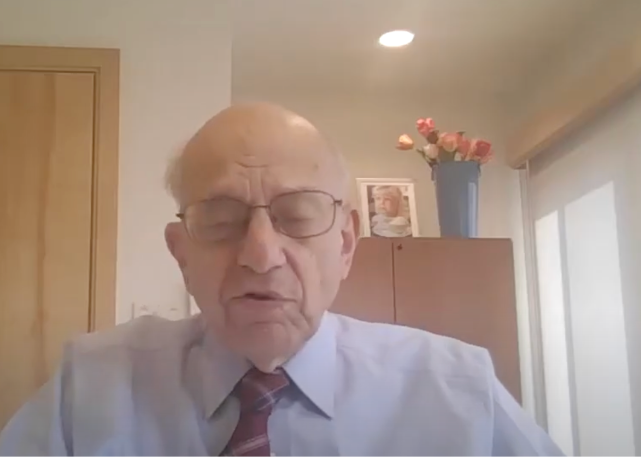News
Wharton’s Jeremy Siegel Urges Emergency Rate Cut Following Troubling US Jobs Report

Source: YouTube
The renowned finance professor Jeremy Siegel from Wharton's School of Business has issued a bold call to the Federal Reserve. On Monday, he called for an emergency 75 basis-point cut in the federal funds rate. This urgent recommendation came after a lackluster jobs report was released on Friday. Siegel also suggested an additional 75 basis-point cut to be indicated for the upcoming September meeting.
Jeremy Siegel Calls for an Emergency Rate Cut
According to Siegel, the current federal funds rate should be between 3.5% and 4%. The present rate, which stands at 5.25% to 5.5%, is too high given the current economic conditions. A basis point, which equals 1/100th of a percentage point, might seem small, but in the realm of federal interest rates, it holds significant power. An emergency move by the Federal Reserve between meetings would be unusual, though not without precedent.
The call for drastic measures follows the Federal Reserve’s decision last week to keep interest rates unchanged. The recent jobs report showed slower growth than expected and an increase in the unemployment rate to 4.3%, the highest since October 2021. This unemployment figure surpassed the central bank's target of 4.2%. Siegel highlighted that inflation has decreased by 90% towards the Fed's 2% target, yet there has been no movement in the federal funds rate. Jeremy Siegel’s critique is clear: “How much have we moved the fed funds rate? Zero. That makes absolutely no sense whatsoever.” His comments point to a disconnect between the Fed's actions and the economic data at hand.
Market Reactions and Historical Precedents
Following Siegel’s remarks, Chicago Federal Reserve President Austan Goolsbee refrained from commenting on the possibility of an emergency rate cut. However, he assured that the Fed would take action if the economy deteriorates further. Siegel, on the other hand, is confident that an emergency cut would be welcomed by the markets. He believes the markets would “rip higher” in response.
Drawing on historical precedent, Siegel referenced Fed Chair Alan Greenspan’s emergency 50 basis-point cut in early 2001, following a decision not to cut rates at the December 2000 meeting. The market reacted positively, rallying sharply. Siegel questioned the Fed’s historical understanding of economic conditions, stating, “Since when has the Fed known anything about the economy? The market knows so much better than the Fed. They’ve got to respond.”
Potential Consequences of Fed Inaction
Siegel warned that failing to implement an emergency cut before the September meeting could lead to negative market reactions. He criticized the Fed’s slow response to rate changes, both during the rise and potential fall of the rates. Siegel labeled the Fed’s delayed action on raising rates as the “first policy error in 50 years.” He cautioned that a similar delay in cutting rates could spell trouble for the economy.
Siegel’s views suggest that the Federal Reserve needs to act swiftly and decisively. His call for an emergency rate cut reflects a sense of urgency to align monetary policy with current economic realities.
Economic Balancing Act
The Federal Reserve faces a challenging decision. Balancing inflation control with the need to support economic growth is a delicate act. Jeremy Siegel’s call for a significant rate cut underscores the urgency many feel in light of recent economic indicators. The upcoming September meeting will be crucial. Will the Fed heed Siegel’s advice and implement a 75 basis-point cut, or will they choose a different path? The market, and indeed the broader economy, awaits their decision with bated breath.
Jeremy Siegel's call for an emergency rate cut highlights the complexities and pressures facing the Federal Reserve. With a disappointing jobs report and rising unemployment, proactive measures may be necessary to stabilize the economy. As Siegel suggests, the market may indeed know better than the Fed. It is now up to the central bank to decide whether to take swift action or risk the economic consequences of inaction.
Do you agree with Jeremy Siegel that the Fed should issue an emergency rate cut to help prop up the economy? Or, should American adopt a wait-and-see attitude until after the elections?



